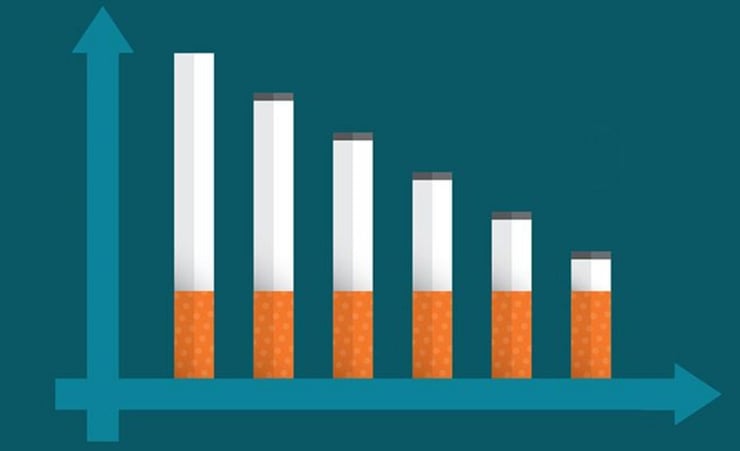Daily youth smoking rates at all time low in New Zealand

The ASH Year 10 Snapshot Survey ( the largest, and longest running survey of youth tobacco and vaping behaviours and attitudes in the world) published today shows Aotearoa’s daily youth smoking rates continue to decline across all ethnicities, with overall rates falling to an all-time low from about 2% between 2015-19 to 1.3% in 2021. The survey is part of the NZ Youth Tobacco Monitor and the Ministry of Health’s public health monitoring programme.
Daily smoking rates for Maori students saw a substantial decrease for the first time since 2015, from about 5-6% between 2015-2019 to 3.4% in 2021, with Maori girls showing the biggest drop in daily smoking of any group (6.8% in 2019 to 3.7% in 2021), echoing the results of the NZ Health Survey published in December.
“Tamariki and rangatahi are the future of Aotearoa and we want to continue empowering them to lead smokefree lives and make decisions that are in the best interest of their health and wellbeing. The ASH Survey gives us robust and encouraging evidence that we are heading in the right direction, with more mahi to be done through the recently launched Smokefree Aotearoa 2025 Action Plan,” says Director General of Health Dr Ashley Bloomfield.
While the survey shows daily vaping rates among those who had never smoked remain relatively low at 3%, it also showed there has been an increase in daily vaping across all ethnicities (3.1% in 2019 to 9.6% in 2021), particularly amongst Maori boys and girls and Pacific girls – the population groups that showed significant decreases in their daily smoking rates. The most common reason given by youth for vaping was “just to give it a try” with daily vapers saying their most common source of vapes was their friends.
Recent amendments to the Smokefree Environments and Regulated Products Act 1990 have introduced a range of rules to support rangatahi to lead vape free lives by reducing the appeal of vaping products and restricting their access and exposure to them.
“Last year new vaping regulations were added to existing laws to do more to protect youth. Vaping products cannot be sold to under-18s and Specialist Vape Retailers must take all practicable steps to stop youth under 18 from entering their premises. Retailers must also display R18 notices with health warnings at every point-of-sale,” says Dr Bloomfield.
“Vaping advertising and sponsorship are banned and so are colouring substances to reduce the appeal of vaping products. Vaping – like smoking – is banned in schools and in most vehicles carrying under 18s. General retailers?(like dairies, supermarkets, and service stations) can no longer sell vaping or smokeless tobacco products that contain flavours other than tobacco, mint, and menthol. Only approved Specialist Vape Retailers may continue to sell any flavour.
“The Ministry of Health is also overseeing the co-design of a new youth campaign that supports rangatahi to make the decision to stay vape free and to help them understand that the best choice for their health is to say ‘no’ to vaping.”
The Smokefree Schools website and Vapefree Schools website offer information, guidance and support for schools concerned about smoking and vaping.



